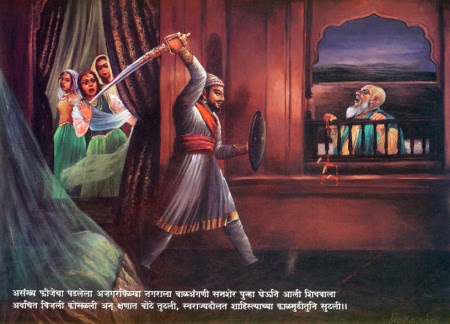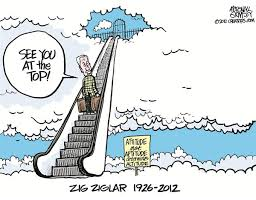I had an opportunity to interact with the readers of a famous Magazine. It was a two-day program. At the end of the program, a young man asked me:
'Swamiji! I am a postgraduate. It is more than ten years since I completed my studies. So far, I have not received even a single interview card from the employment exchange. So, I am working as a cashier in a restaurant.
This job has no connection whatsoever with my educational qualifications. Last month, there was a shortage of cash at the counter. I do not know how it happened. The shame of being accused loomed large in my mind.
I thought I could pawn one of my wife's jewelry and replace the missing amount. But my wife refused. I asked my mother. She only fired me, but did nothing to help me! In this world, my own mother and wife were not ready to save my honor!'
I told him, ‘Leave alone the fact that your mother and wife not trust you. Do you trust yourself? Think deeply! You lack the confidence to take risks in life. So, you are stuck in a job that you dislike. Since you dislike your job, you are unable to do it with full involvement. Because of this, you are not able to remember how that money was missing! So, your problem is not your wife or mother. It is you, yourself ! Lack of self-confidence is your problem. First try to overcome it.'
Reflect on this.
A person from New York visited my ashram and asked, 'Swamiji, I am so depressed because my wife left me the moment I reached USA. Now I am divorced. I am 29 years and feel my whole life is wasted.'
hen asked for the reason, he said, 'Who will marry me, as I am already 29 years old?'
I told him, 'Even cockroaches have multiple partners in life. Are you less than a cockroach to feel that you cannot get another woman in your life?'
Just see how poor was his self-esteem. It is a fact that his wife had left him. Poor self-confidence is killing his life. But he has to develop self-confidence so as to get a partner, as he is still 29 years young. In order to foster growth of self-confidence, three qualities are absolutely essential.
Firstly, we should never give into worries, sadness and self-pity. Instead learn to feel good and build self-esteem.
Secondly, we should learn new skills. If we do not acquire new skills, we cannot develop self-confidence!
What I mean by skill is, expertise in some field, which is of interest to us. It could be carpentry, gardening, painting, cooking, plumbing…. Select any field, learn it and train yourself in it!
Finally, the ability to take on responsibility and be accountable.
You, would have seen some employees in Government Service. When you ask them a question, they will never give a definite answer of 'Yes' or 'No.' Their replies are either vague or incomplete. If an issue is to be resolved, they will listen to the whole narration, only to say at the end, 'Well, why don't you go directly to the higher official and tell everything?' This behavior is dubbed as 'cautiousness'. They would pat themselves with pride for having such a sense of cautiousness'!
This is definitely not cautiousness ... it is just passing the buck! Passing on the responsibility to someone else. It is a very disgusting thing to do. Persons with self-confidence take responsibility on themselves.
Look at the history of successful people.
There are many who have succeeded in life, without education, money and why, even arms or legs! There are such achievers; but no person has succeeded without self-confidence.
In Olympics, why do only a few countries win gold medals repeatedly? Many reasons can be given for this-availability of training facilities, professional coaching, basic infrastructure... but there is one very important reason. This is known as sports psychology. The Russians discovered it, but it has been well understood and developed by the Americans.
Sports psychology indicates that heightened physical activity is not sufficient to win any competition; but mental toughness is also required. That is to say, when an athlete is participating in a race, even if he thinks just for a moment that he might lose, it is enough to make him lose. He would not be able to perform with his full strength in the race after such a thought has entered his mind. So, not only while participating, but also while practicing, he must tell himself repeatedly with a strong belief- 'I am going to win!'
Go on playing the mental video of you winning and position yourself powerfully. This is known as 'Mental Rehearsal'.
Recently one of my students asked, 'Swamiji! I am not like others. I did not depend on a government job; I invested all my money in business. I faced a huge loss and now I am broke. Tell me how I can fill myself with self confidence ?'
There were umpteen failures in the life of this person .
When he was 7 years old, his family was forced out of home on a legal dispute.
At 9, his mother died.
At 22, he lost his job as a clerk.
At 25, he was defeated in a legislature election.
At 27, he had nervous breakdown.
At 28, he lost his beloved.
At 30, he lost the election for the post of a speaker.
At 35, he lost the Congress election.
At 46, he lost the Senatorial elections- around the same time he lost his son.
At 47, he lost the Vice Presidential elections.
These failures could not shake his self-confidence!
At 52, he became the President of USA. And he is Abraham Lincoln. So, please do not allow the past to damage your self-confidence!
The essence of one of the letters I received goes like this, `Swamiji, I will be completing 35 years of age. I have changed many jobs such as an insurance agent, a cosmetics salesman, a field representative.... When I look back, I spent more money than I earned. I have become very depressed. What shall I do now?' Anything material, money, car, house, position, etc. can be gifted to another, but there is only one thing that cannot be gifted to someone on a silver platter 'Success.' One can achieve it only if one works hard with smartness. I think it would be appropriate to share the life history of Colonel Sanders.
The fast food outlet of KFC has made its appearance in many Indian cities too. There are hundreds of such outlets all over the world. The yearly income of this fast food chain runs into several millions of dollars. The person who laid the foundation for this successful chain was one Colonel Sanders.
At an age when he should have been enjoying the relaxed lifestyle of a retired person-at sixty three-he could not live his life without a goal. He was neither a Harvard graduate nor came from a very rich family. He knew how to fry chicken that was juicy inside and crisp outside. He took the recipe and approached many restaurants. Several hoteliers turned him away, without even reading his recipe! But did not lose heart. He did not give up his efforts. He went to many cities and gave his recipe to other hoteliers. Aged as he was, he climbed the steps of many, many restaurants. The total number of restaurants he approached was 1,006!
He was the personification of perseverance. For two long years, he continued his relentless efforts and finally one hotelier evinced some interest in his recipe. The rest is history.
Today, the world over, Kentucky Fried Chicken- KFC is famous! Attitude is more important than mere dry facts. Colonel Sanders had an attitude of 'I can' rather than 'I can't'.
‘Cans’ create Success, 'Cants' create Failure.
Sir Winston Churchill had delivered a number of energizing orations. Once he was invited to deliver a speech to a youthful audience. He spoke only one sentence. That sentence today has become a quotation used by many others. He said -
‘Never, never, never give up !'
-- Swami sukhabodhananda.


















.jpg)













.jpg)





